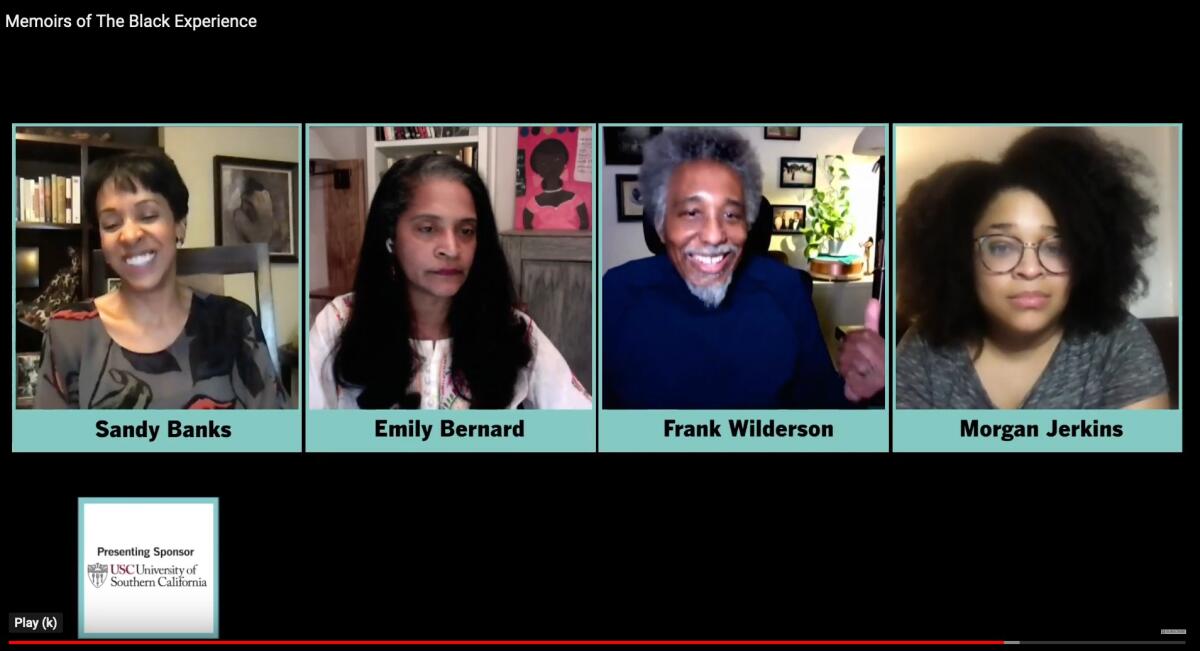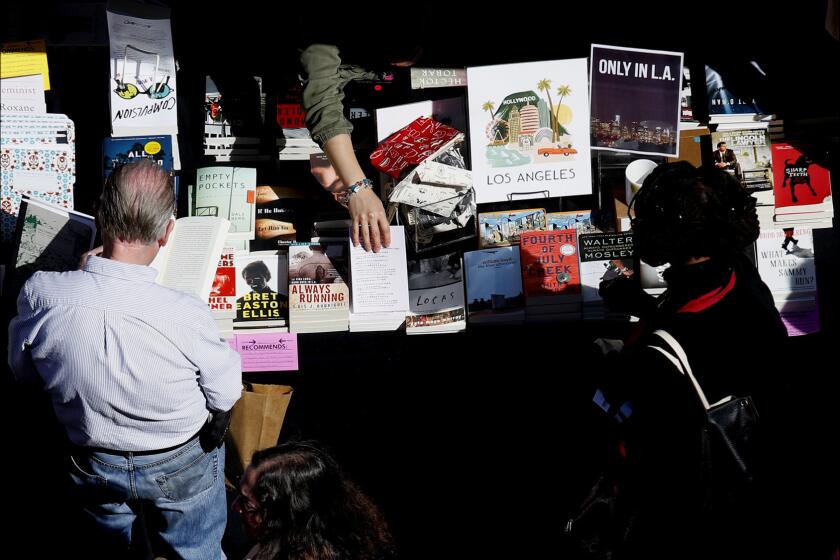Black authors on Black Lives Matter, anti-racism and staying true to your writing

- Share via
The viewer’s question was topical: “In the wake of this incredibly close election, do you see the Black Lives Matter movement continuing to flourish? Is the anti-racism message getting through?”
Morgan Jerkins, cultural critic and author of “Wandering in Strange Lands: A Daughter of the Great Migration Reclaims her Roots,” was reluctant to say yes.
“I’m not sure the anti-racism message is getting through, and the reason why I say that is because of the election,” she said Wednesday night during a virtual Festival of Books event. “To be in a country where a man, or our current president, has over 66 million votes” was flabbergasting to her, as was the fact that more white women voted for President Trump this time than they did in 2016.
As for Black Lives Matter, she’s not so sure either. “It started because of Michael Brown‘s body [lying] in the street for hours, and I’m thinking about if we have to keep doing this again and again and again, more of us are going to die and it shouldn’t take that,” she said.

“As a writer it’s difficult for me now,” added Jerkins, “because how many times can I say, ‘Stop killing us.’ How many times can I say that there’s a historical precedent for this. How many times can I say that it’s just not enough to put a hashtag. There has to be more.”
Jerkins was joined by Frank B. Wilderson III, the author of “Afropessimism,” and Emily Bernard, winner of The Times’ Christopher Isherwood Prize and writer of “Black Is the Body: Stories from My Grandmother’s Time, My Mother’s Time and Mine,” with Times columnist Sandy Banks moderating. The panelists discussed their latest books, Black identity and how not to cater to white audiences.
Wilderson, a professor of African American studies and drama at UC Irvine, echoed Jerkins’ sentiment.
“America has never responded to the discourse — the ideas, the ideology, the demands, the verbal and written articulation of suffering — of Black people,” he said. “So I don’t see this as a different period than 1968 or before that, Emmett Till.”
The 25th Los Angeles Times Festival of Books, Stories & Ideas kicks off this weekend. Due to the pandemic, this year’s series of free events will be virtual. Here’s everything you need to know about how to tune in.
Wilderson went much further than Jerkins; to him, racism is baked in, and always will be. “I think that it is psychoanalytically impossible for the collective unconscious to imagine that people with Black flesh suffer and can be injured.”
He grounded his theory in a simple parable: A little Black girl on a playground tells a little white girl, “My daddy can whoop your daddy.” The little white girl responds: “Yeah, but my daddy owns your daddy.” “That is the foundation of the collective unconscious,” he said. “There is no redemption for Black people in this country. It’s just not possible.”
But then, Wilderson offered a glimmer of hope.
“What the four of us are doing right now is not nothing,” he said. Organizing, educating and creating dialogue are crucial to improving the lives of Black Americans.
The conversation closed on advice to Black writers hoping to break into the literary world.
“Don’t ask for permission ...,” Jerkins said. “Just start writing and read other writers.”
Kurt Andersen, The Lincoln Project’s Stuart Stevens and Stephen Miller biographer Jean Guerrero talked presidential politics and the future of the GOP in an anxious, sobering panel at the 2020 virtual Times Festival of Books.
Wilderson’s advice? Reject edits meant to appeal to a broader, whiter audience. And perhaps relatedly, don’t spend your advance before the book is in press.
And Bernard emphasized the importance of knowing the history of African American writing within a white publishing industry. “Try not to be swayed by the demands that are always shifting, or perceived demands from readers,” she said. “You have to stay true to that voice because that’s going to be with you to the grave.”
More to Read
Sign up for our Book Club newsletter
Get the latest news, events and more from the Los Angeles Times Book Club, and help us get L.A. reading and talking.
You may occasionally receive promotional content from the Los Angeles Times.











